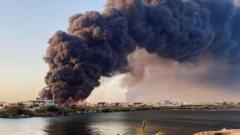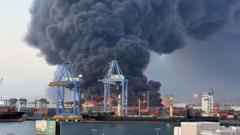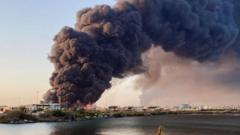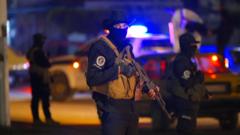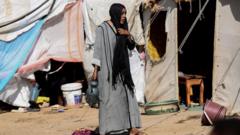As the Islamic State regains strength in Syria amidst an unstable political landscape, the risk of a resurgence poses a serious threat not only to the country but also to the broader Middle Eastern region.
Islamic State's Resurgence Sparks Concerns in Post-Civil War Syria

Islamic State's Resurgence Sparks Concerns in Post-Civil War Syria
Experts warn that a renewed Islamic State presence in Syria could destabilize the region further, as increased attacks and the potential escape of fighters from prisons loom.
The Islamic State is once again posing a threat in Syria, as revealed by recent reports from the United Nations and U.S. officials indicating a rise in both the group’s recruitment and its attacks. With the political landscape in Syria remaining fragile following the fall of President Bashar al-Assad, this resurgence could jeopardize the country's chances of stabilizing after years of brutal dictatorship.
Although the group is not as powerful as it was a decade ago when it controlled significant territory across eastern Syria and northern Iraq, security experts caution that the potential release of hardened Islamic State fighters from prisons could reignite chaos in the region. Currently, an estimated 9,000 to 10,000 Islamic State members and around 40,000 family members are being held in detention centers managed by U.S.-backed Syrian Kurdish forces in northeastern Syria.
The possibility of these individuals escaping would not only bolster the group’s ranks but also create a significant propaganda opportunity. Colin Clarke, head of research at the Soufan Group, points out that prisons currently serve as a “crown jewel” for the Islamic State, teeming with experienced fighters whose release would enhance their operational capabilities.
Moreover, these developments indicate that while some doors have opened for potential progress in Syria, the shadow of the Islamic State could thwart any attempts to move beyond violence and tyranny. The implications extend beyond Syria's borders, raising fears of increased instability throughout the Middle East and potentially facilitating future attacks both regionally and in Europe.




